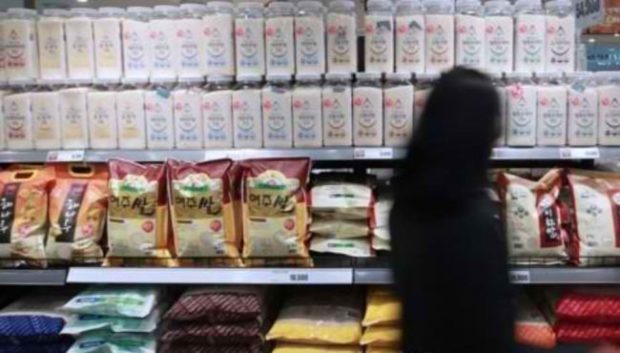SEOUL — South Korea has maintained stable supplies of grains amid growing uncertainties about the global trade of grains caused by massive lockdowns imposed across borders to combat the spread of the novel coronavirus, industry data showed Monday.
As the deepening coronavirus pandemic sparked border closures and strict lockdowns, governments across the globe embarked on restrictions of grain exports to prevent a potential food shortage. Countries including Russia, Ukraine, Cambodia and Kazakhstan began to suspend the export of grains last month.
According to a report released by the Korea Rural Economic Institute, the Korean government and local farms have stockpiled a combined 1.99 million tons of rice so far, which is expected to be supplied to the market until the upcoming harvest period between September and October.
“While limited grain exports and price surge triggered the global food shortage during the financial crisis in 2008, the coronavirus outbreak would not wreak havoc in the local food market in the short term as the country has stored enough grains,” a KREI official said in the report.
Food grains like wheat as well as stock feed products are also stocked in sufficient amounts, available until October and November, respectively. This is attributed to a growth in imports of agricultural products. As of 2019, imports of food and feed grains respectively increased by 2 percent and 8 percent from a year earlier, the report said.
Meanwhile, market experts raised the importance of expanding facilities aimed at storing domestic and imported grains and introducing a mandatory grain stockpiling system in local farms in case the coronavirus outbreak is prolonged.
“If major exporters of grains further extend their limits on transactions or closed the ports to South Korea, the local market would face tough times,” said the official.
“The country needs more storage infrastructure like silos on ports, and the government should review a system that pressures local exporters and importers of staple grains to store a certain amount of the products, which was implemented in the oil industry in 1992.”
